I wanted to dig deep into my antique perfumery books to include some interesting history about Benzoin, not because I’m unfamiliar with it but because the story of Benzoin is an old one and one worth retelling – a short version of course. Ancient Greeks and Romans used Benzoin as incense as did Mayans who believed Benzoin could drive away evil spirits. I always wondered if the resinoid had ever been included in the Limpias or egg cleanses that Latin American healers perform. Benzoin was highly prized by not only the Romans and Greeks, but also Egyptians, who in the 1400s would send kilos of it as a gift to other countries. Nostradamus penned many formulas in the 1550s, classifying the resin as a both a skin tonic and antispasmodic. The French named Benzoin , “Baume Pulmonaire” or pulmonary balsam for the support it offered ailing lungs. Benzoin came into my childhood as a curiosity while reading about Elizabeth l who, I learned, enjoyed her Benzoin ground to wrist, likely to buff the stench of 16th century streets. I suspect the vanilla scent didn’t hurt the virginal persona she was so careful to craft. The medicinal Friars Balm is a fascinating one as well with its 600 year history. The Balm saw much use with one of the ingredients being benzoin resin tinctured in alcohol. It was one of the most popular remedies during Victoria era. Roy Genders wrote in, “A History Of Scent,” (a book I highly recommend), that it was customary to add a small amount of Musk and Ambergris to Benzoin in spirit (alcohol) and applied to a handkerchief or the skin. We received our musk pods after a very long voyage for the last three months so we have begun the aging process of Ambergris, Musk Grains and Benzoin to see what we come up with in the next year or two. I expect decadence so stay tuned.
Laos is an important center for the production of Benzoin. And it was clear to us from the first batch we received that this is indeed a resinoid important for perfumery use, giving body and permanence to both a masculine and feminine odor. This rich resinoid is luxurious and balsamic with a slight vanilla profile. It is very concentrated and thick but quite workable and can be used in both botanical perfumery and aromatherapy applications. I always thought it would be exciting to recreate (as close as possible) the original formula of Friars Balm using this gorgeous pourable resinoid.
Suggested uses: In clinical aromatherapy applications, Benzoin is useful for scalp psoriasis and can be added by the drop to a natural shampoo. It is also helpful for treating eczema and psoriasis, chest infections, bed sores and skin wounds. It can help reduce brown marks on face and hands. Add a few drops to any one of our hydrosols to have an effective skin toner.

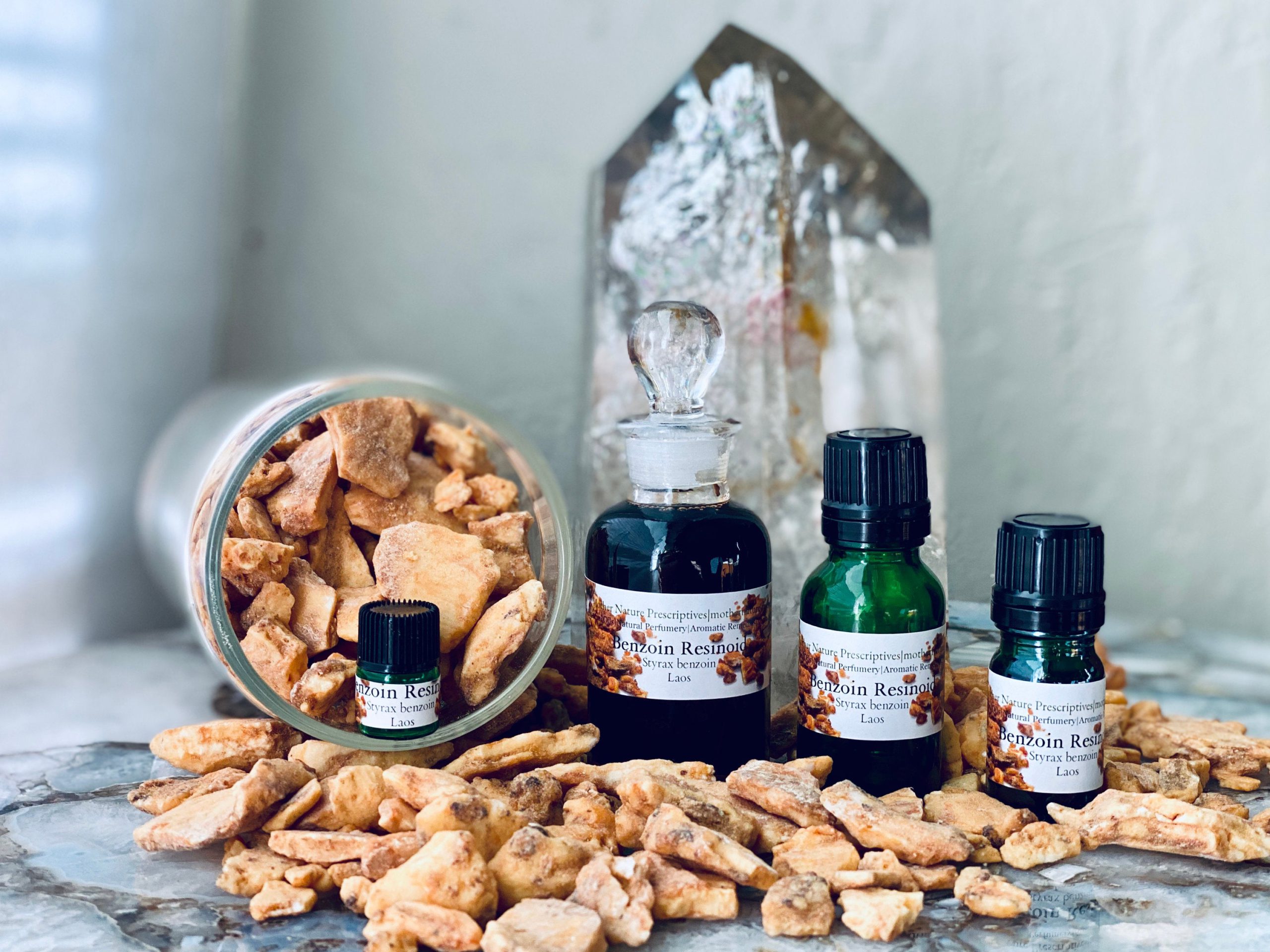
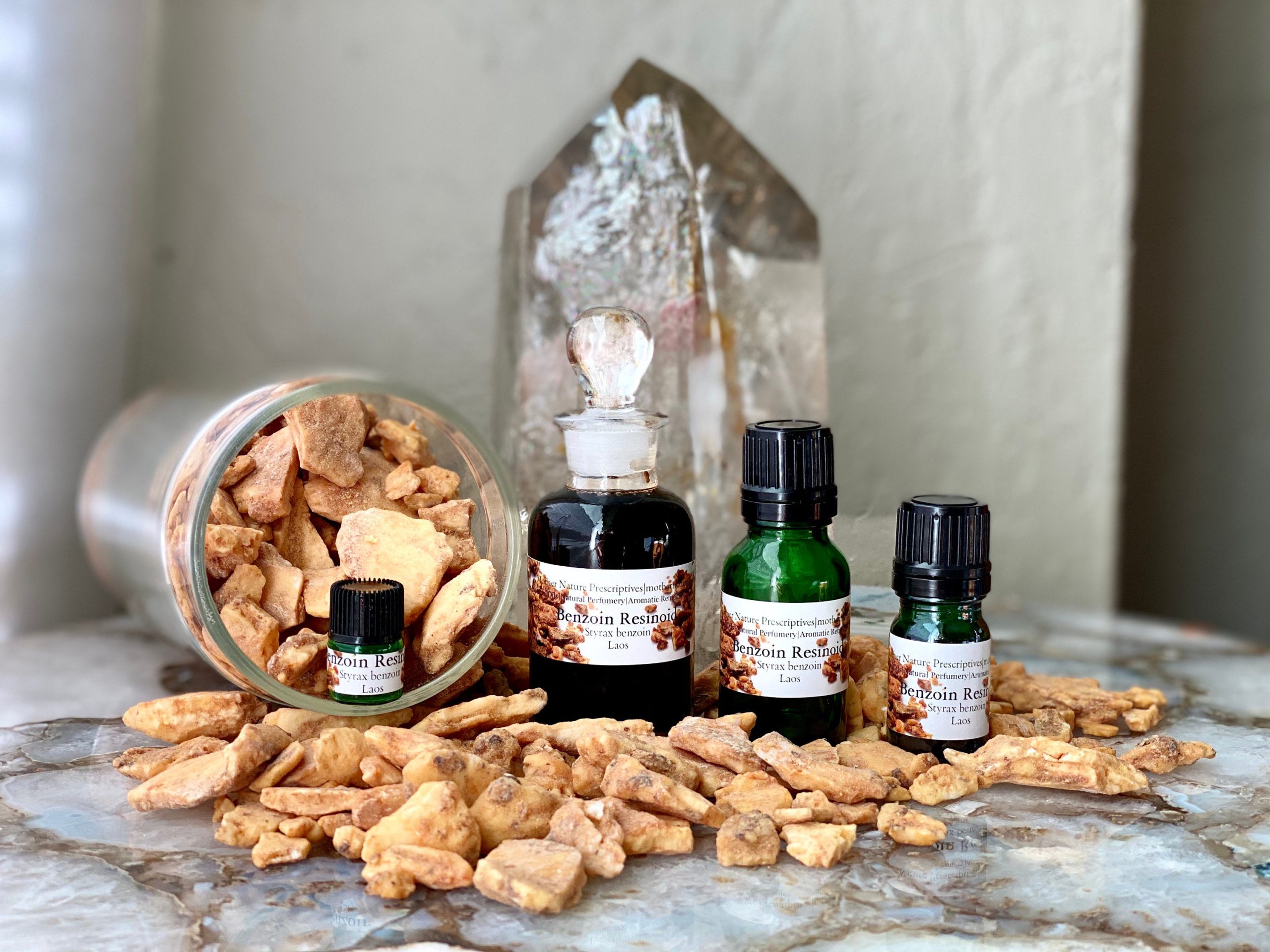

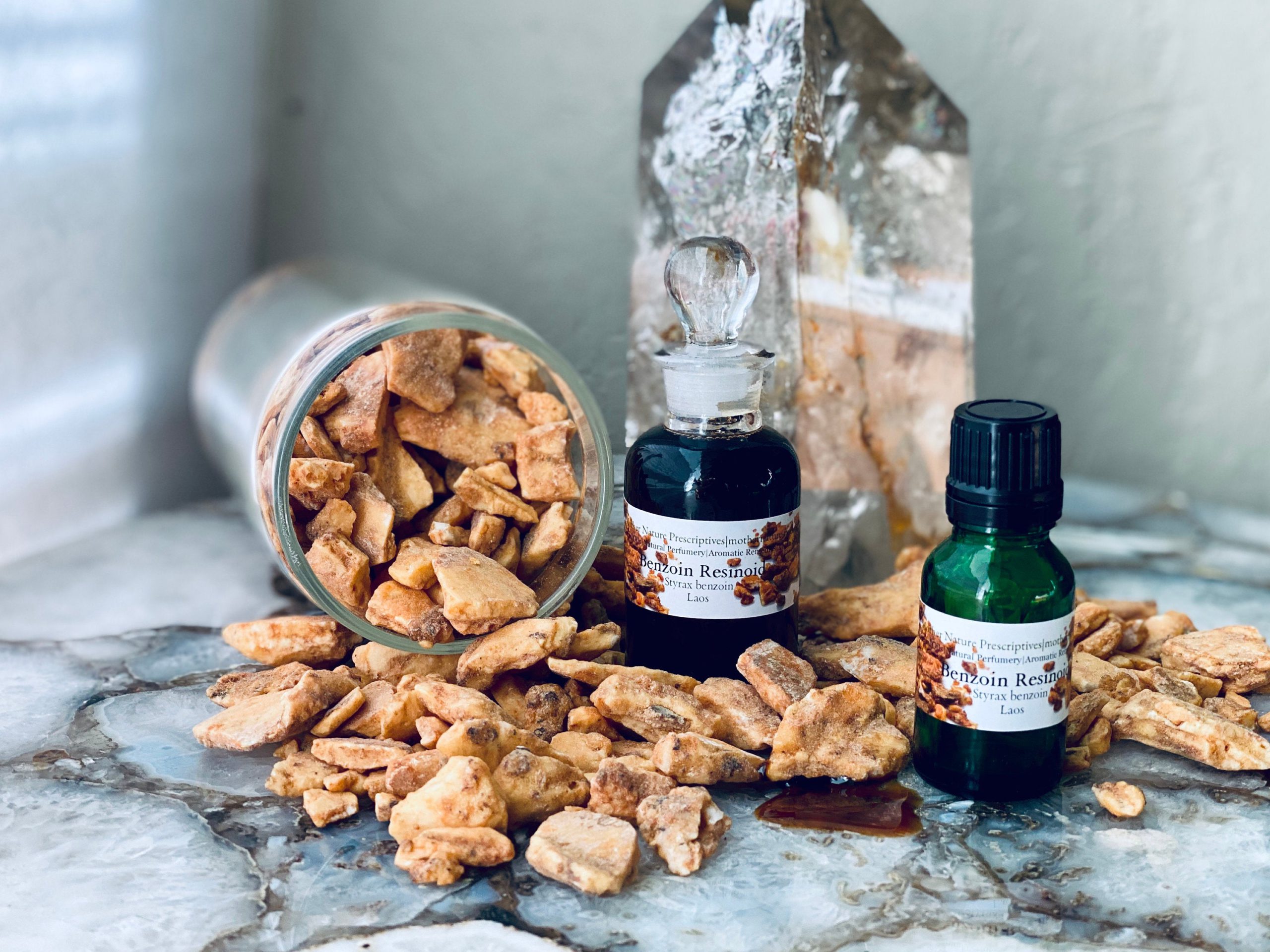
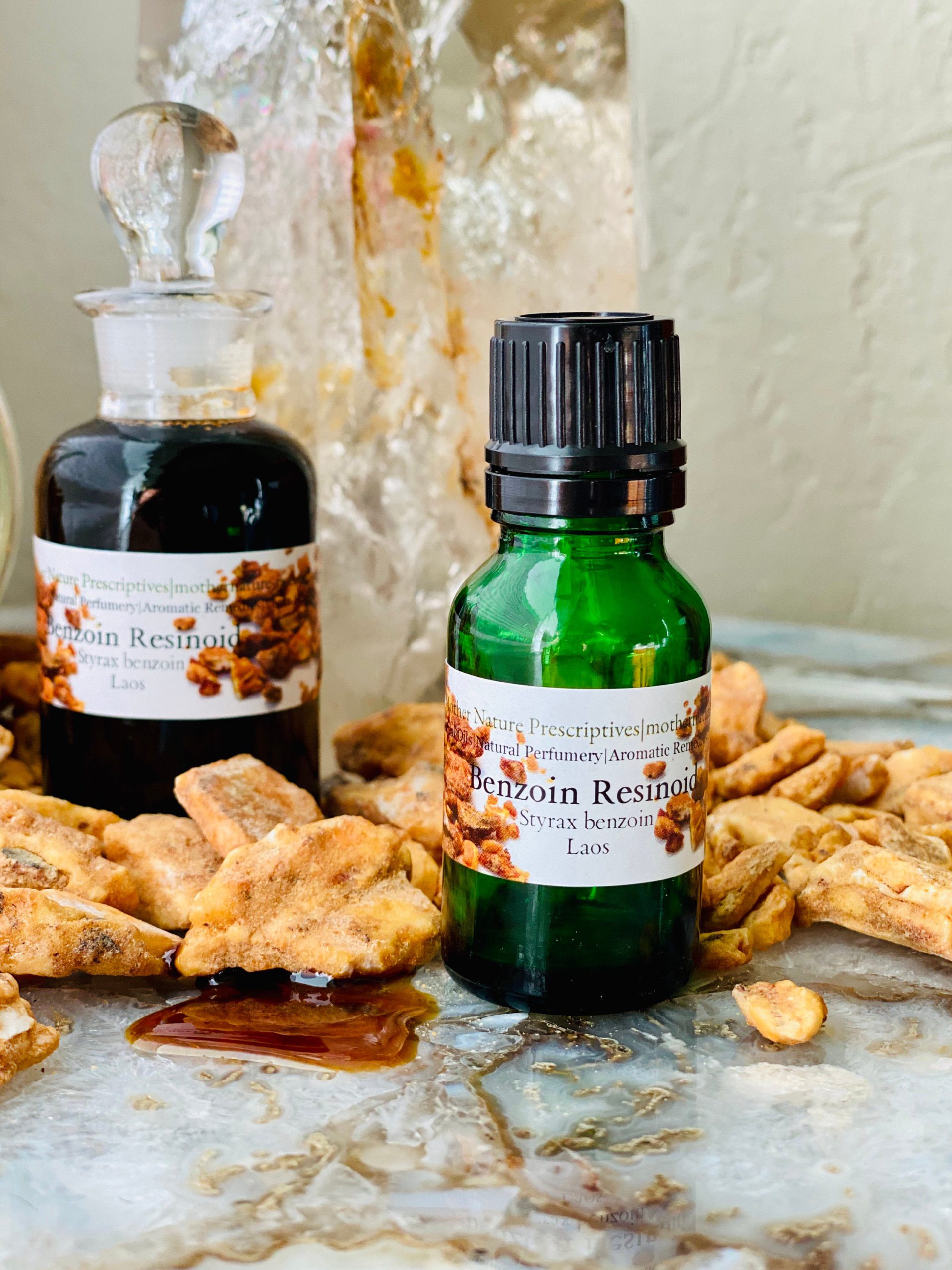
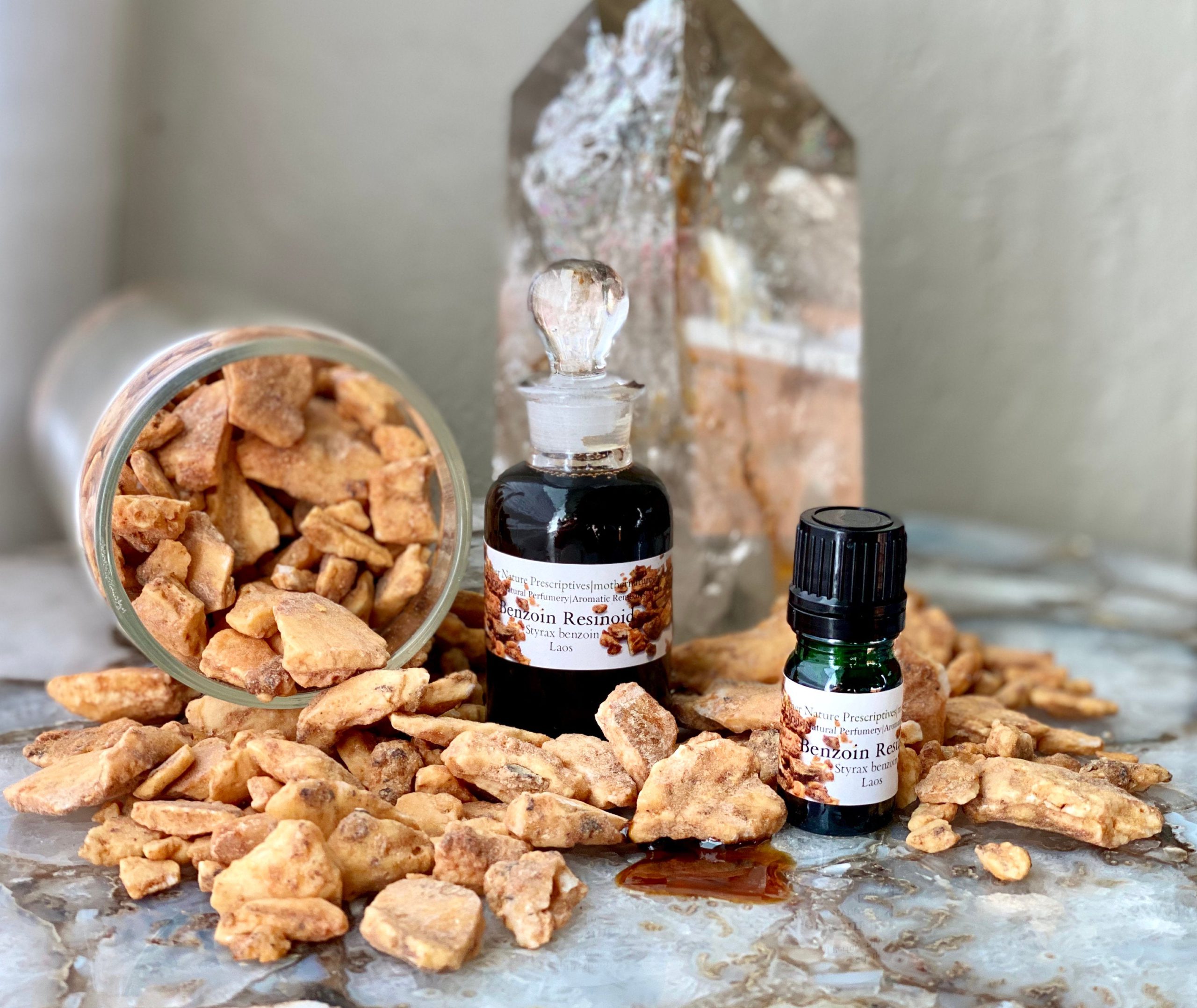
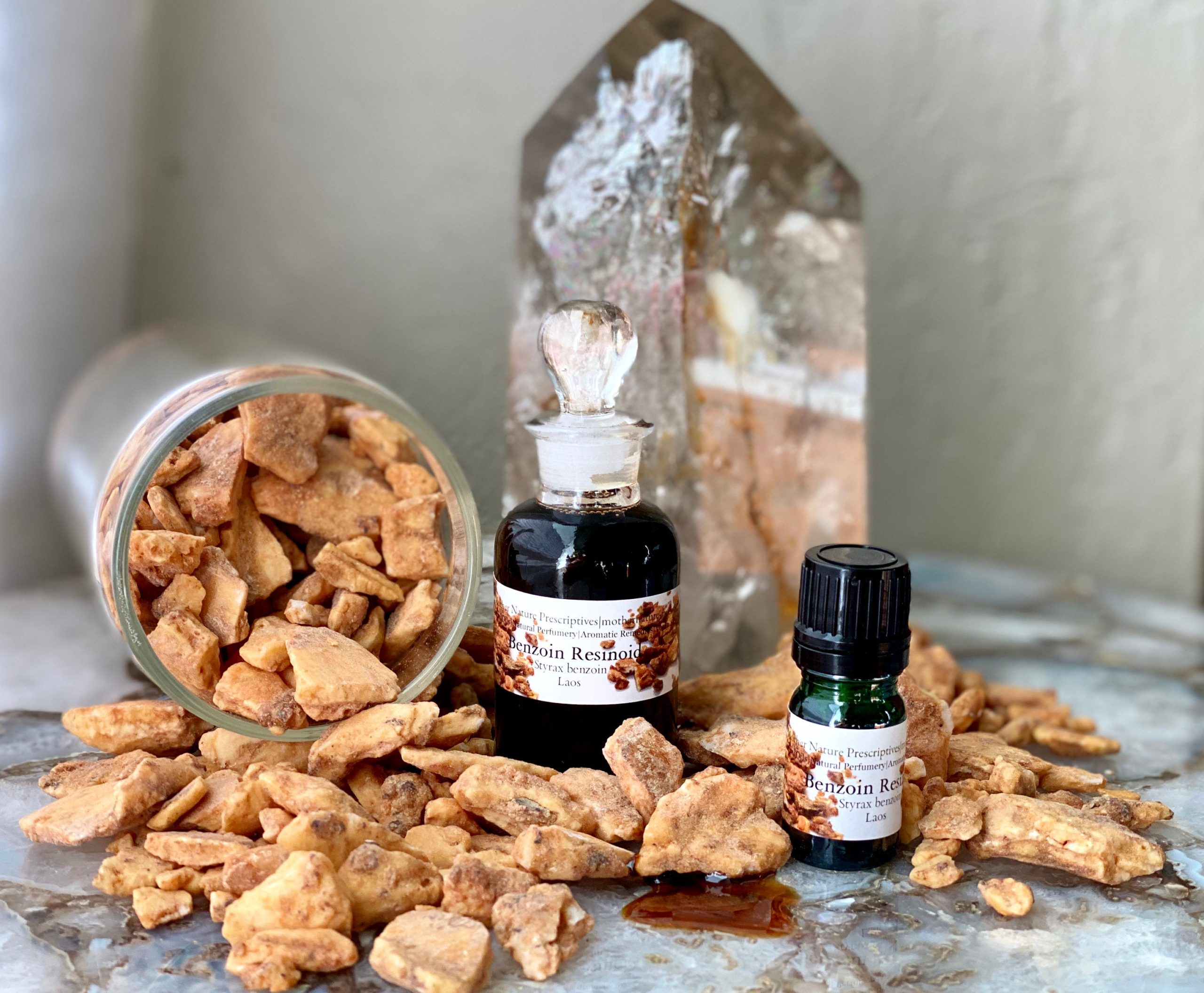
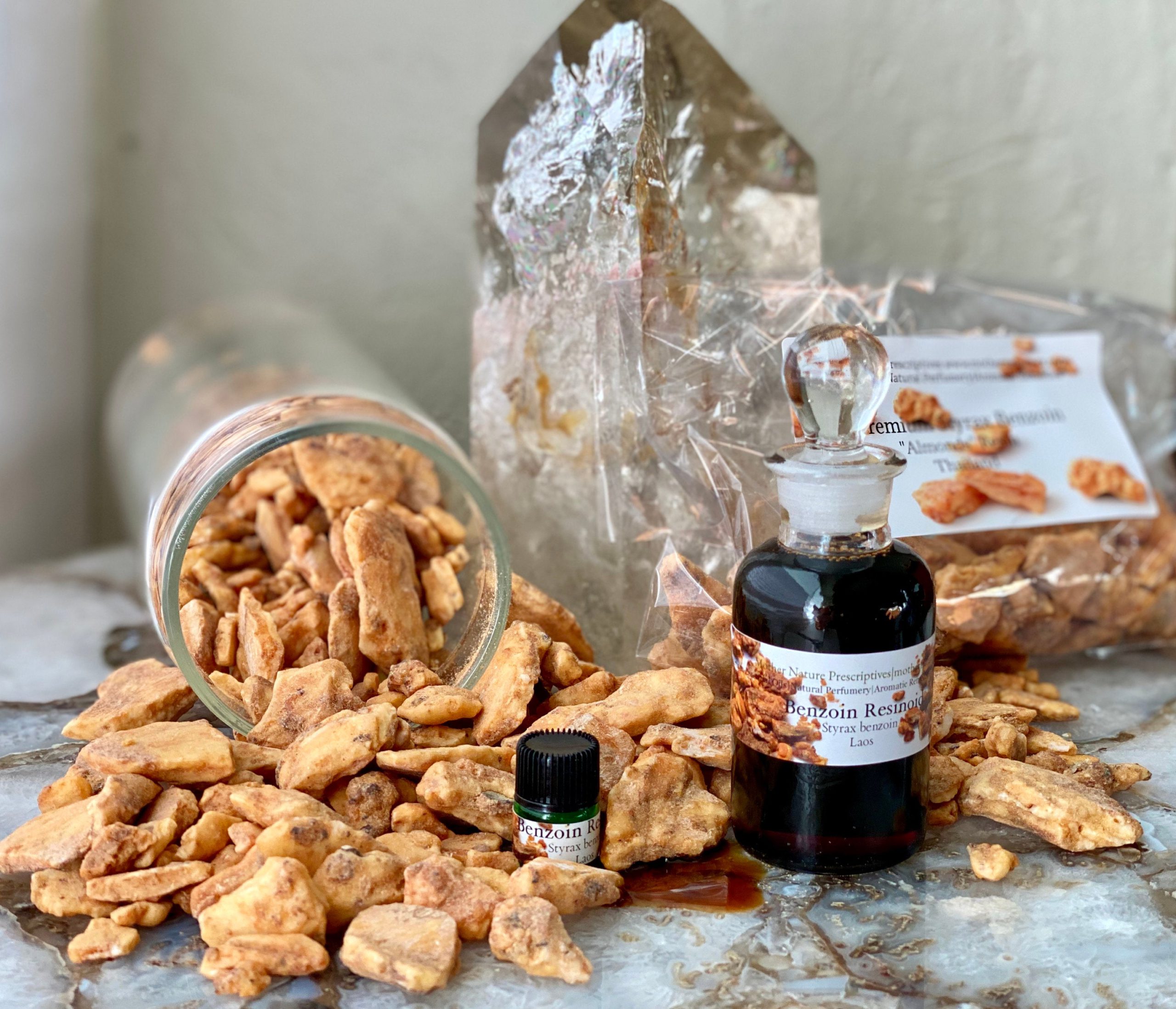
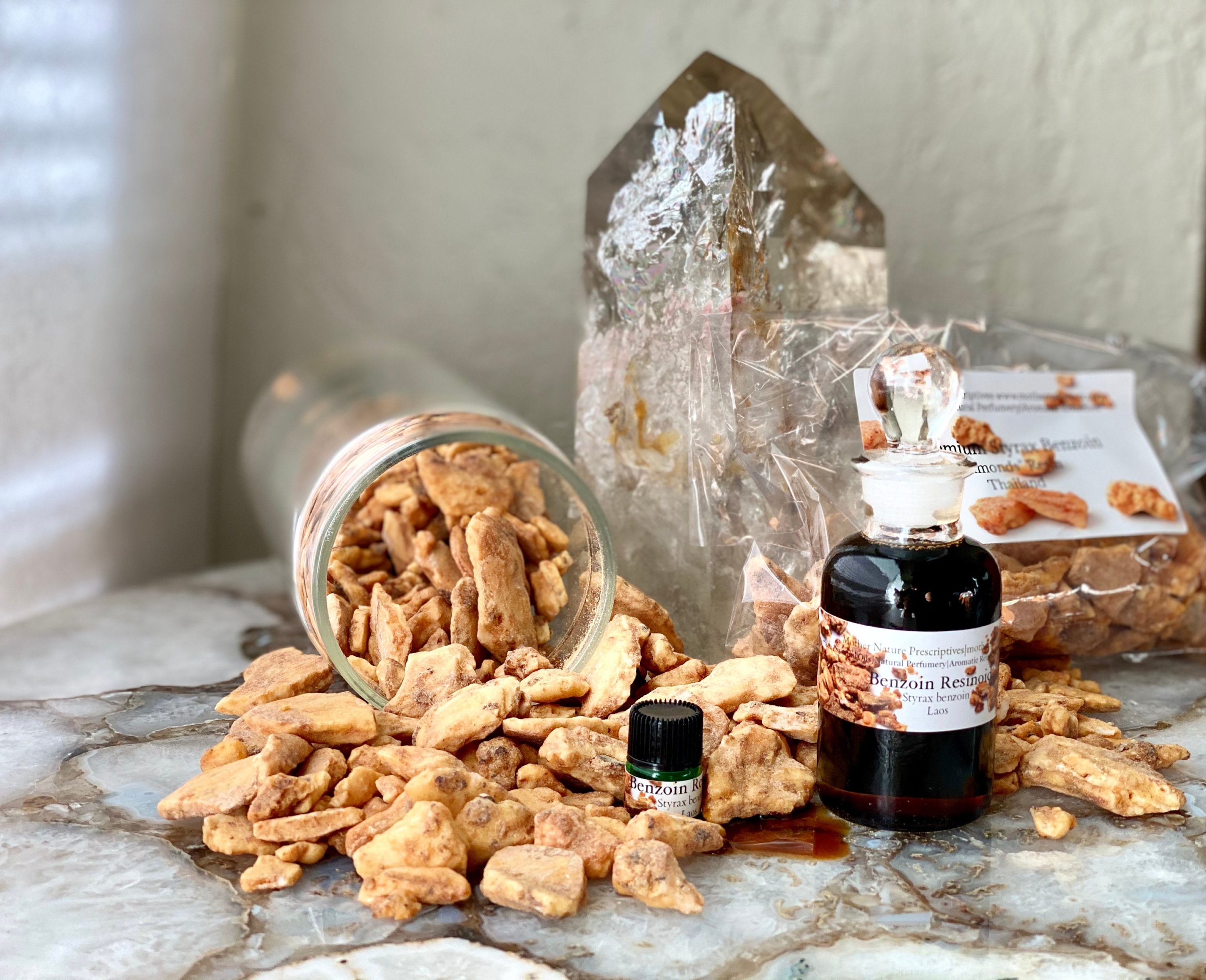
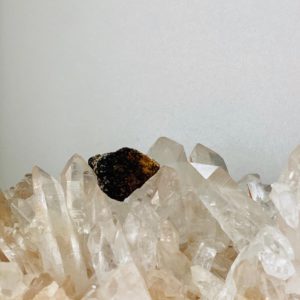
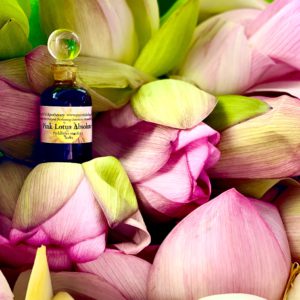
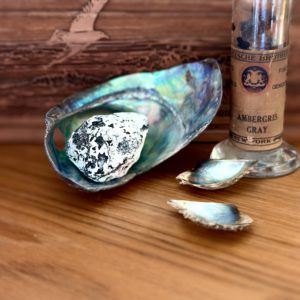
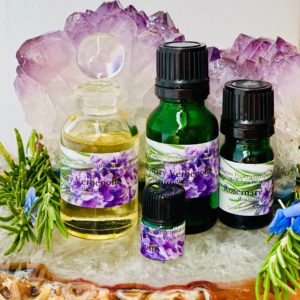
Reviews
There are no reviews yet.